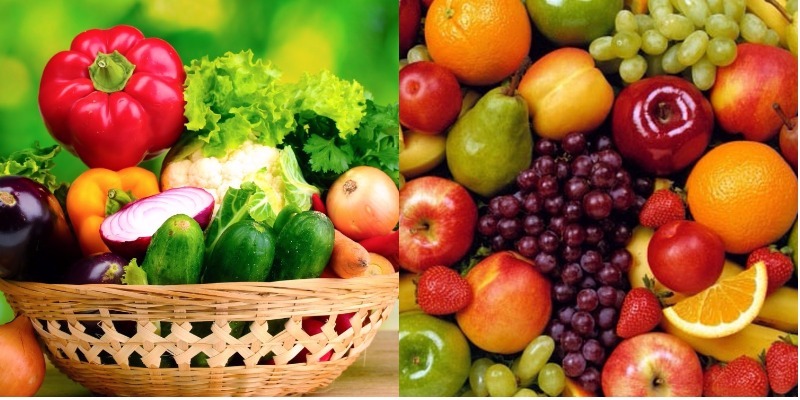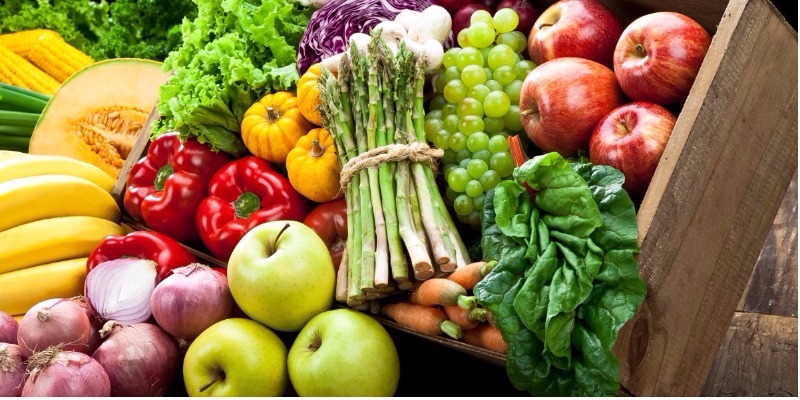The Nutritional Value of Vegetables and Fruits
Vegetables and fruits are essential for providing the body with necessary nutrients, such as Vitamin C, minerals, and trace elements. They are also rich in Vitamin A and antioxidants.
In addition to fiber and minerals, vegetables also contain plant antibiotics that contribute to boosting the immune system.
Fruits have a higher calorie content compared to vegetables and contain varying amounts of sugar. Ripe fruits with pink, red, or orange color are particularly high in Beta Carotene and Iron, which can help prevent Vitamin A deficiency, provide antioxidant properties, and help prevent cancer.

Can Fruits Replace Green Vegetables?
While fruits are beneficial for health, it is not advisable or scientifically sound to completely replace green vegetables with fruits in your daily diet.
Green vegetables play a crucial role in providing vitamins, fiber, and minerals that aid in reducing cholesterol and increasing plant protein in the body.
On the other hand, despite their benefits, fruits have higher sugar and calorie content. Therefore, they should not be used as a substitute for vegetables, especially by individuals trying to lose weight or those with diabetes.
You can incorporate fruits into your diet, but they should never replace vegetables. According to Dr. Nguyen Van Tien, it is recommended for individuals to consume an average of 400g of both vegetables and fruits per day.

What You Need to Know About Chocolate
Despite its tasty flavor, there are long-standing concerns that eating too much chocolate may lead to weight gain and tooth decay. Despite this, chocolate continues to be a popular indulgence during holidays and a meaningful gift to share with loved ones. It is also a popular ingredient for beauty treatments.


































